
Waylon Arnold Jennings was an American singer, songwriter, musician, and actor. He is considered one of the pioneers of the outlaw movement in country music.

David Allan Coe is an American singer and songwriter. Coe took up music after spending much of his early life in reform schools and prisons, and first became notable for busking in Nashville. He initially played mostly in the blues style, before transitioning to country music, becoming a major part of the 1970s outlaw country scene. His biggest hits include "You Never Even Called Me by My Name", "Longhaired Redneck", "The Ride", "Mona Lisa Lost Her Smile", and "She Used to Love Me a Lot".
Outlaw country is a subgenre of American country music created by a small group of iconoclastic artists active in the 1970s and early 1980s, known collectively as the outlaw movement, who fought for and won their creative freedom outside of the Nashville establishment that dictated the sound of most country music of the era. Willie Nelson, Waylon Jennings, Johnny Cash, Kris Kristofferson, and David Allan Coe were among the movement's most commercially successful members.
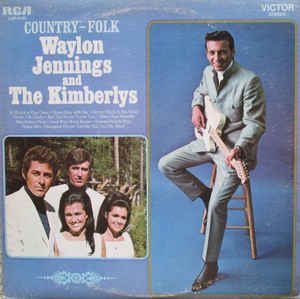
Country-Folk is a studio album by American country music artist Waylon Jennings featuring the Kimberlys on vocals. It was released in 1969 on RCA Victor.

Waylon is a studio album by American country music artist Waylon Jennings, released in 1970 on RCA Victor.
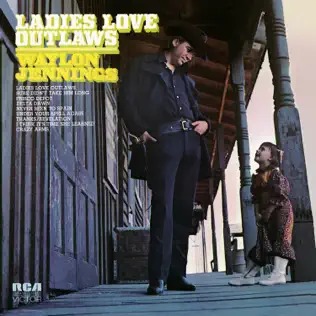
Ladies Love Outlaws is an album by American country music artist Waylon Jennings, released on RCA Nashville in 1972. Together with Jennings' previous album Good Hearted Woman, it marks his transition toward his Outlaw Country image and style. "Ladies Love Outlaws" coined the use of the term "Outlaw" to refer to the country music subgenre, which was developing at the time of its release.

Lonesome, On'ry and Mean is a studio album by American country music artist Waylon Jennings, released on RCA Victor in 1973. It was, after Good Hearted Woman and Ladies Love Outlaws, the third in a series of albums which were to establish Jennings as one of the most prominent representatives of the outlaw country movement. Photographer Mick Rock shot the album's cover.

Honky Tonk Heroes is a country music album by Waylon Jennings, released in 1973 on RCA Victor. With the exception of the final track on the album, "We Had It All", all of the songs on the album were written or co-written by Billy Joe Shaver. The album is considered an important piece in the development of the outlaw sub-genre in country music as it revived the honky tonk music of Nashville and added elements of rock and roll to it.

This Time is a studio album by American country music artist Waylon Jennings, released on RCA Victor in 1974, at the peak of the outlaw country movement. It was produced by Jennings and Willie Nelson.

Dreaming My Dreams is the twenty-second studio album by American country music artist Waylon Jennings. The album was co-produced with Jack Clement and recorded at Glaser Sound Studio in Nashville, Tennessee, between February and July 1974.

Wanted! The Outlaws is a compilation album by Waylon Jennings, Willie Nelson, Jessi Colter, and Tompall Glaser, released by RCA Records in 1976. The album consists of previously released material with four new songs. Released to capitalize on the new outlaw country movement, Wanted! The Outlaws earned its place in music history by becoming the first country album to be platinum-certified, reaching sales of one million.
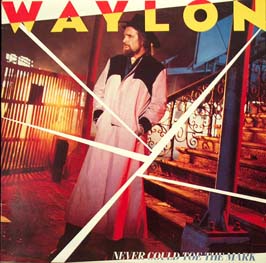
Never Could Toe the Mark is a studio album by American country music artist Waylon Jennings, released on RCA Victor in 1984.
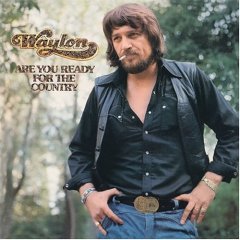
Are You Ready for the Country is a studio album by American country music artist Waylon Jennings, released on RCA Victor in 1976.

What Goes Around Comes Around is a studio album by American country music artist Waylon Jennings, released on RCA Victor in 1979.

Black on Black is a studio album by American country music artist Waylon Jennings, released on RCA Victor in 1982.

It's Only Rock & Roll is an album by Waylon Jennings, released on RCA Victor in 1983.

Rides Again is an album released by country musician David Allan Coe. It was released in 1977 on Columbia.
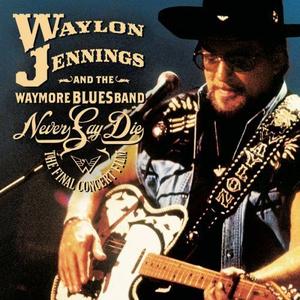
Never Say Die: The Final Concert is a 2000 concert film featuring Waylon Jennings. Jennings, his health failing, played his last major concert at Nashville's historic Ryman Auditorium in January 2000. He was backed by the all-star Waymore Blues Band, whom Jennings called "the band I always wanted," and joined onstage by his wife Jessi Colter, and by guests John Anderson, Travis Tritt and Montgomery Gentry.
"Don't You Think This Outlaw Bit's Done Got Out of Hand" is a song written and recorded by American country music artist Waylon Jennings. It first released in October 1978 as the second single from his album I've Always Been Crazy. The song peaked at number 5 on the Billboard Hot Country Singles chart. It also reached number 1 on the RPM Country Tracks chart in Canada. Waylon redid the song specifically as well as several others in a session in the mid-1990s in a much slower and more regretful tone towards his previous actions dubbing it 'Outlaw Shit' and it would be released on the 2008 album Waylon Forever, Waylon's first posthumous studio album release.

Son of the South is an album released by country musician David Allan Coe. It was released in 1986 on Columbia.


















